Afghanistan: the battle to save the sick from sanctions
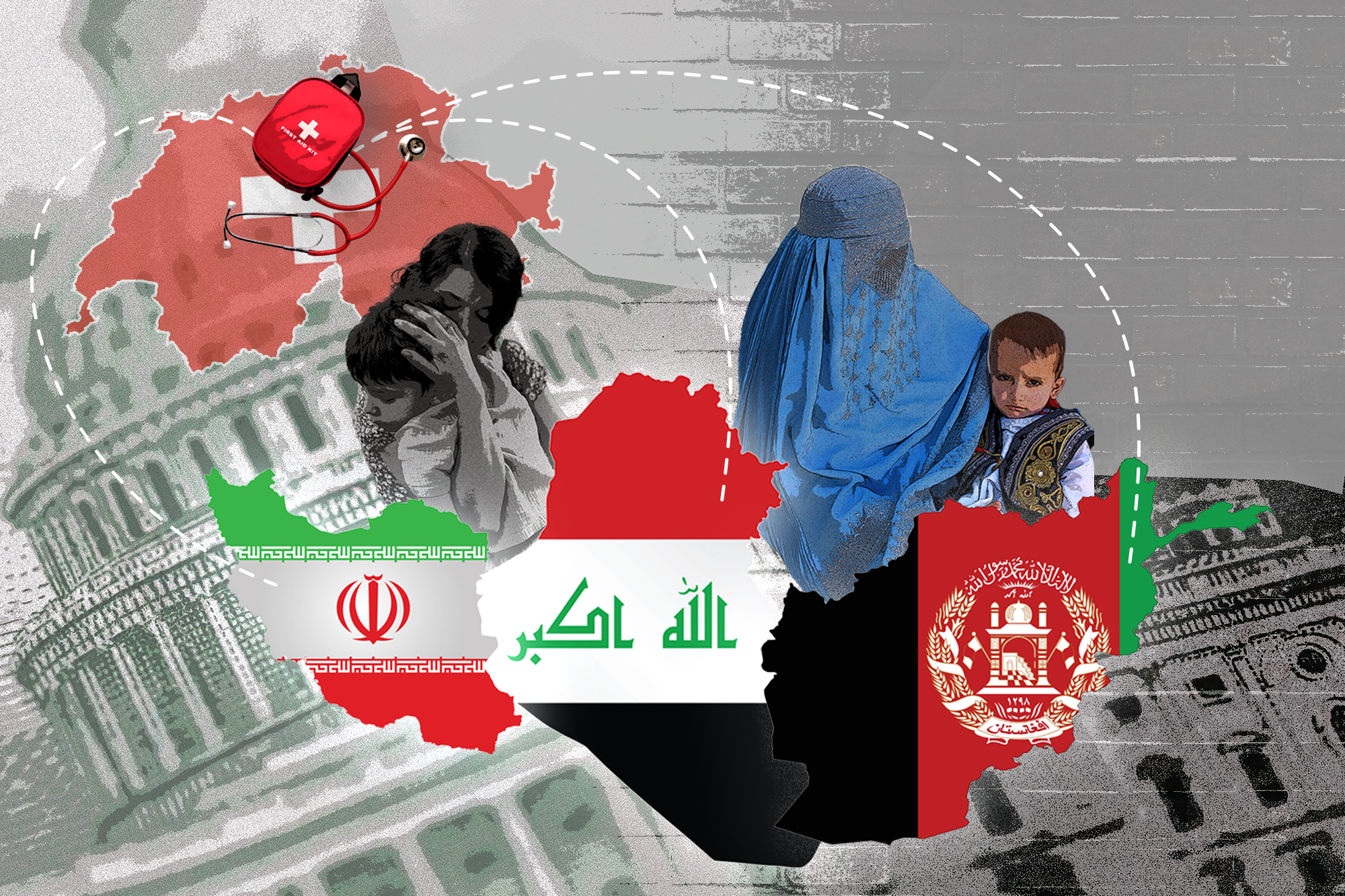
Banks are reluctant to process funding to sanctioned regimes for fear of breaching the rules. This leads to often dramatic consequences for local populations. Switzerland has been trying to address the problem in Iran and Afghanistan, but with limited results.
“I am livid,” Dominik Stillhart wroteExternal link in autumn 2021 after visiting Afghanistan in his capacity as director of operations for the International Committee of the Red Cross (ICRC). “Pictures viewed from afar of bone-thin children rightly elicit gasps of horror,” he wrote in a personal statement published on the ICRC website at the end of a six-day visit to the country.
“When you’re standing in the paediatric ward in Kandahar’s largest hospital, looking into the empty eyes of hungry children and the anguished faces of desperate parents, the situation is absolutely infuriating.”
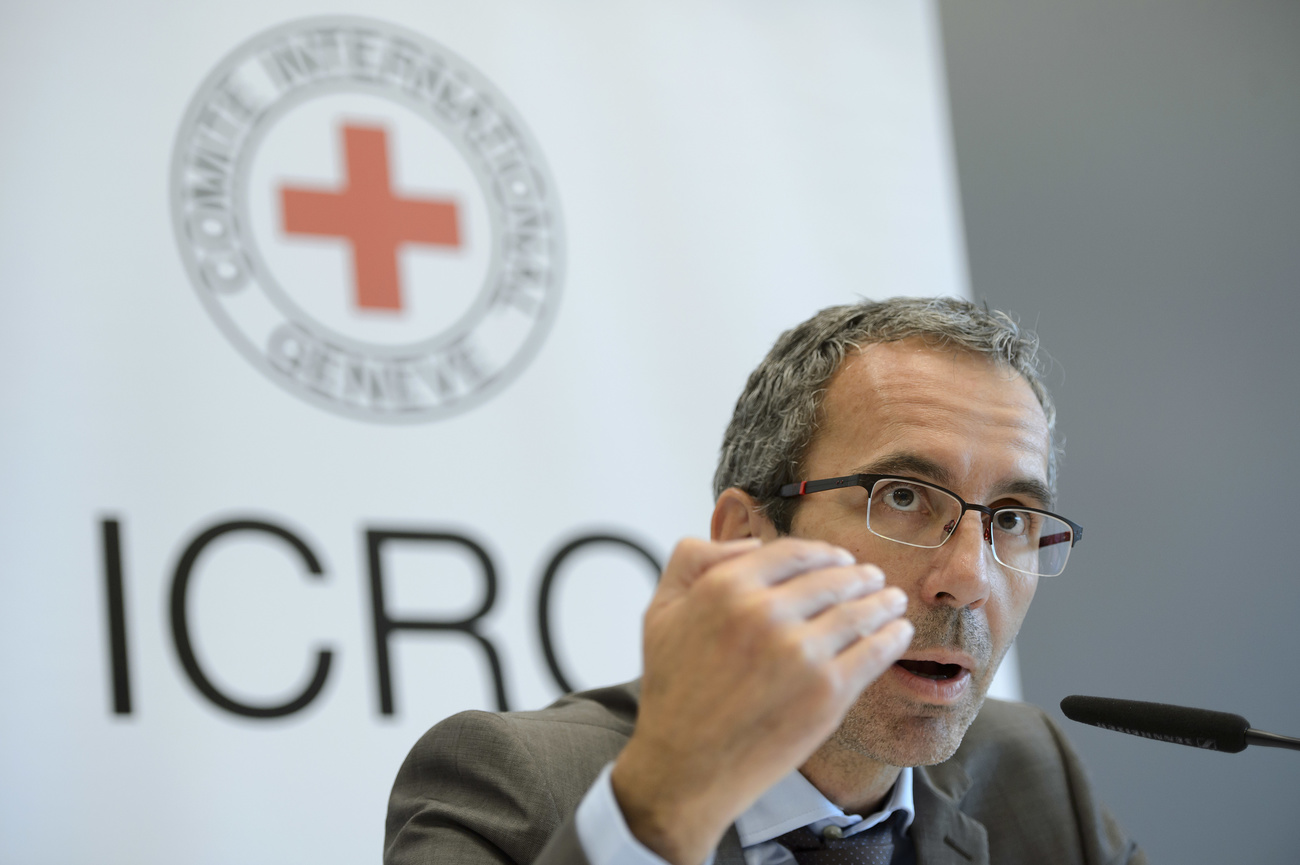
The problem? Lack of money. Months earlier, the Taliban had marched into Kabul and taken control of state institutions. The extremist group has been under UN sanctionsExternal link since the 1990s and was designatedExternal link by the US as a terrorist organisation after the suicide attacks on American soil on September 11, 2001. In August 2021 US President Joe Biden frozeExternal link $7 billion (CHF6.25 billion) of assets held by the Afghan central bank in New York.
As sanctions proliferate worldwide, their often disastrous impact on health services is increasingly attracting the attention of governments, academics, and humanitarian organisations. In 2020 the Swiss government launched an initiative to facilitate delivery of medicine to Iran. Switzerland also hosts a fund of frozen assets which could potentially be used to support the ailing population in Afghanistan. But solutions to the decades-old problem of sanctions and medicine remain elusive.
“Sanctions on banking services are sending the economy into free-fall and holding up bilateral aid,” Stillhart wrote, noting that the ICRC had stepped in to help prevent the total collapse of Afghanistan’s public health system. “It’s so infuriating because this suffering is man-made. Economic sanctions meant to punish those in power in Kabul are instead freezing millions of people across Afghanistan out of the basics they need to survive.”
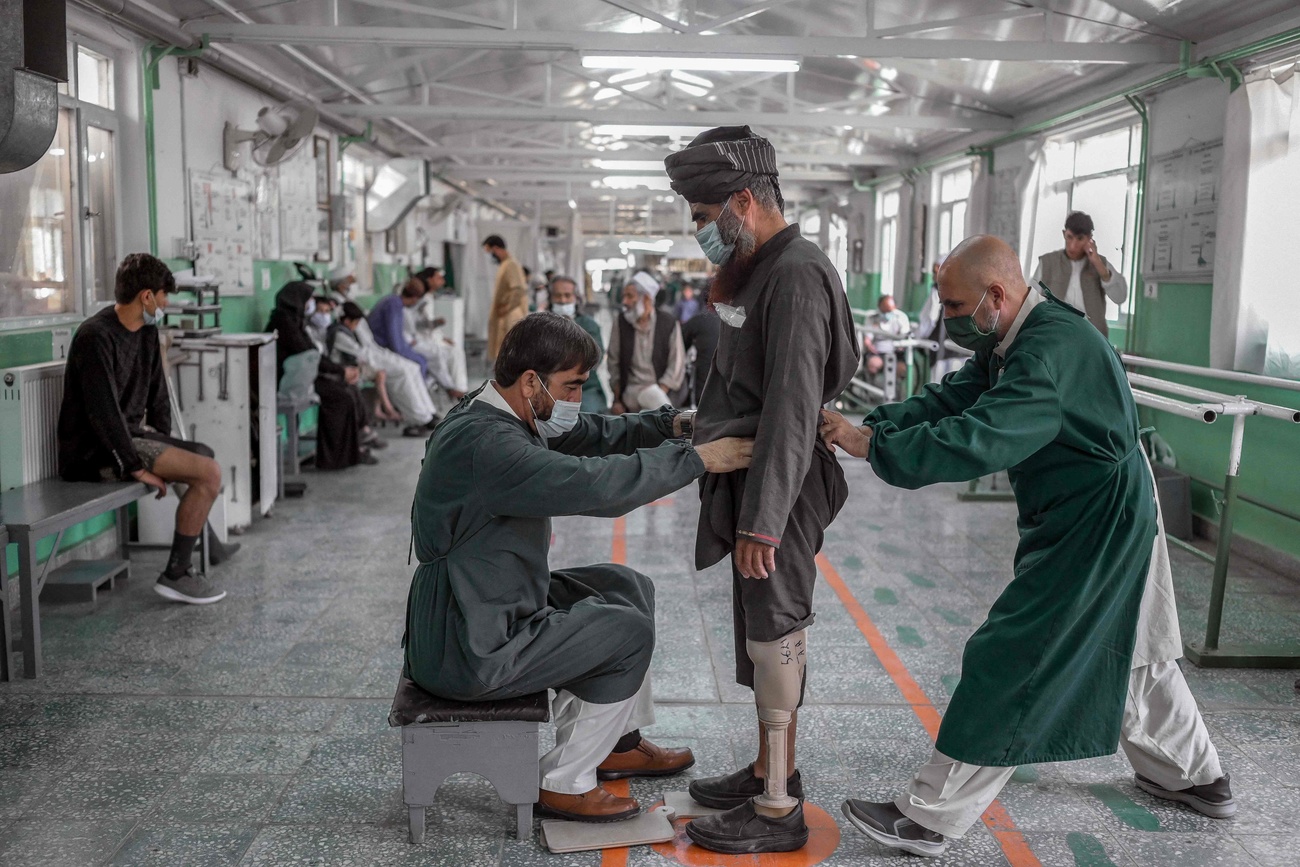
Sanctions controversy
The impact of sanctions on public health first hit the headlines in the 1990s when the UN placed Iraq under embargo during the 1991 Gulf War. A report published by the UN Children’s Fund, UNICEF, in 1999 estimated that child mortality had doubledExternal link in the government-controlled parts of the country since the beginning of the war.
It was widely citedExternal link that sanctions had led to the deaths of half a million children in Iraq, and Madeleine Albright, US Ambassador to the UN at the time, went on recordExternal link saying it was a hard choice but a price worth paying. Almost two decades later, a study published in the British Medical Journal on Global HealthrefutedExternal link the child mortality numbers, claimingExternal link they had been manipulated by Saddam Hussein’s regime in an effort to have the sanctions lifted.
The episode shows just how politically loaded it is to try to quantify the impact of sanctions on the availability of medicine and public health more broadly, as rulers in sanctioned countries have an incentive to blame other states for civilian suffering and divert attention from their own mismanagement.
Iraq’s humanitarian crisis triggered a shift awayExternal link from comprehensive sanctions. Today, the UN targets individuals or organisations with measures that include a freeze on assets, travel bans, or arms embargoes. Even so, this has not put civilians out of harm’s way, partly because some Western states started to apply their own unilateral sanctions from the mid-2000s separate from those imposed by the UN. Critical sectors, like oil, are targeted — as well as the shipping companies and banks involved in the trade.
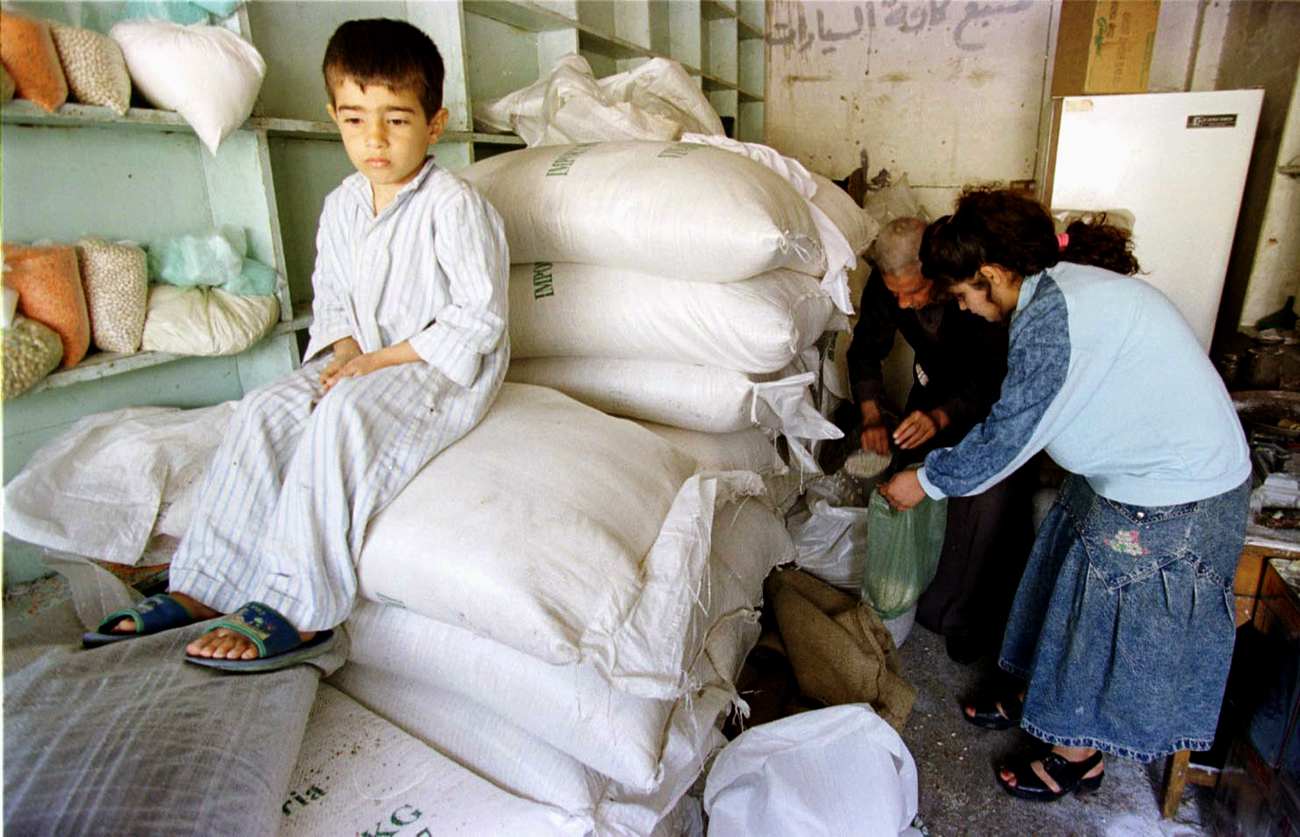
“In all sanctioned jurisdictions, the mismanagement and corruption of local governments contribute to the deterioration of humanitarian conditions,” researchers at the Geneva Graduate Institute found in a paperExternal link published in November 2020. But “the evidence clearly points to a steadily worsening humanitarian situation due to the comprehensivisation of sanctions, the scenario that targeted sanctions were precisely designed to prevent”, they wrote.
Despite exemptions for critical goods, the researchers found that buying medicine has become difficult for heavily sanctioned countries because most international banks, which process the funding, have been de-risking their operations. In the case of sanctions against Iran, “banks’ demonstrated aversion to administer payments […] has created a bottleneck in the trade in vital goods, which has disrupted the supply chain from foreign manufacturers to patients, particularly for the most advanced medicines”, the paper found.
The Swiss government has tried to address the bottleneck in medicine delivery by creating a special payment channelExternal link for medical supplies to Iran. Under the mechanism, set up in 2020, exporters and banks inform the Swiss State Secretariat for Economic Affairs (SECO) of their intended business activities and partners in Iran. SECO verifies the information and shares it with the US Treasury Department which then issues assurances that a transaction can be processed in accordance with US legislation.
The channel started off with a pilot payment of €2.3 millionExternal link (CHF2.2 million) to ship cancer drugs from Switzerland to Iran. However, only five additional transactions have been carried out since then, bringing the total value transferred to €5.1 million, according to numbers SECO provided to SWI swissinfo.ch.
Read more on sanctions and Switzerland
Sanctions can be traced back to medevial times with mixed results.
No money for medicine
When sanctions were imposed on Afghanistan, many of the humanitarian organisations that financed the country’s health services suspended their aid, leaving hospitals with no cash to buy medicines. By the end of 2021, the country had grown intoExternal link the world’s largest humanitarian crisis.
The UN approvedExternal link exemptions from Afghanistan-related sanctions in December 2021 in an attempt to ease civilian suffering and allow international donors to step back in. The US adoptedExternal link a series of general licences to authorise humanitarian activities, remittances and medicine exports.
To allow aid organisations to function in the midst of an acute liquidity crisisExternal link, the UN started flying cash into the countryExternal link — $1.8 billion in 2022, plus an additional $880 million from January to mid-June 2023.
And yet, a research paper published by the Norwegian Refugee Council in March this year concludesExternal link that efforts to help the country secure access to medicine are still being hampered by international banks’ unwillingness to process funding. Widespread misconceptions about what businesses can and cannot do under sanctions against the Taliban prevent companies from engaging with Afghanistan and hinder the private sector’s recovery from economic collapse, the report found.
Today, more than two years after his outburst against Afghanistan’s health crisis, Dominik Stillhart sees little room for optimism. Now head of the Swiss Humanitarian Aid Unit, he told SWI swissinfo.ch in July that “the health sector in Afghanistan is still in poor condition. Access to healthcare is particularly limited in rural areas”.
While the de-facto authorities have managed to stabilise public services at a low level, “it is still a huge problem that there is too little cash in the economy”, Stillhart said. Hospitals continue to depend completely on international aid. “In principle, humanitarian organisations should not have to sustain a system over the long term. But no government will provide funds to the Taliban.”
Switzerland is playing a crucial role in the recovery of the Afghan economy and re-opening access to medicine. Half of the Afghan assets frozen by the US after the Taliban took power — $3.5 billion — has been transferred to a bank account in Basel and is being administered by a Geneva-based foundation called Fund for the Afghan PeopleExternal link. The fund could help stabilise the Afghan health system in the long term, but in the short term, sanctions and risk considerations remain centre-stage.
At a meeting in JuneExternal link, the board of trustees “discussed finalising the selection of a compliance service provider to assist with due diligence and controls procedures related to disbursements”. As of October, the fund was still “unable to anticipate an exact date for disbursement”, its executive secretary Andrea Dall’Olio told SWI swissinfo.ch
Edited by Nerys Avery
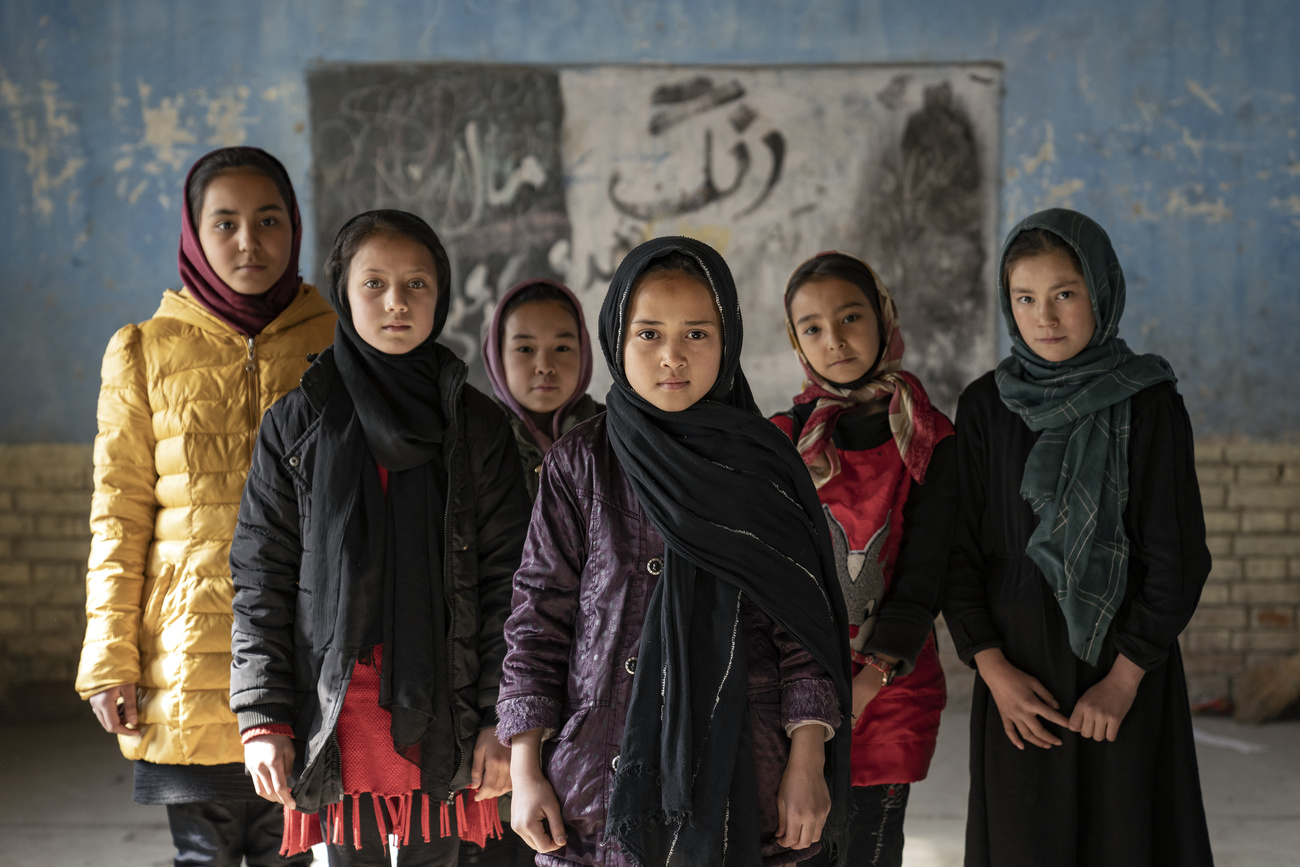
More
Swiss NGO in Afghanistan says ban on women is red line

In compliance with the JTI standards
More: SWI swissinfo.ch certified by the Journalism Trust Initiative









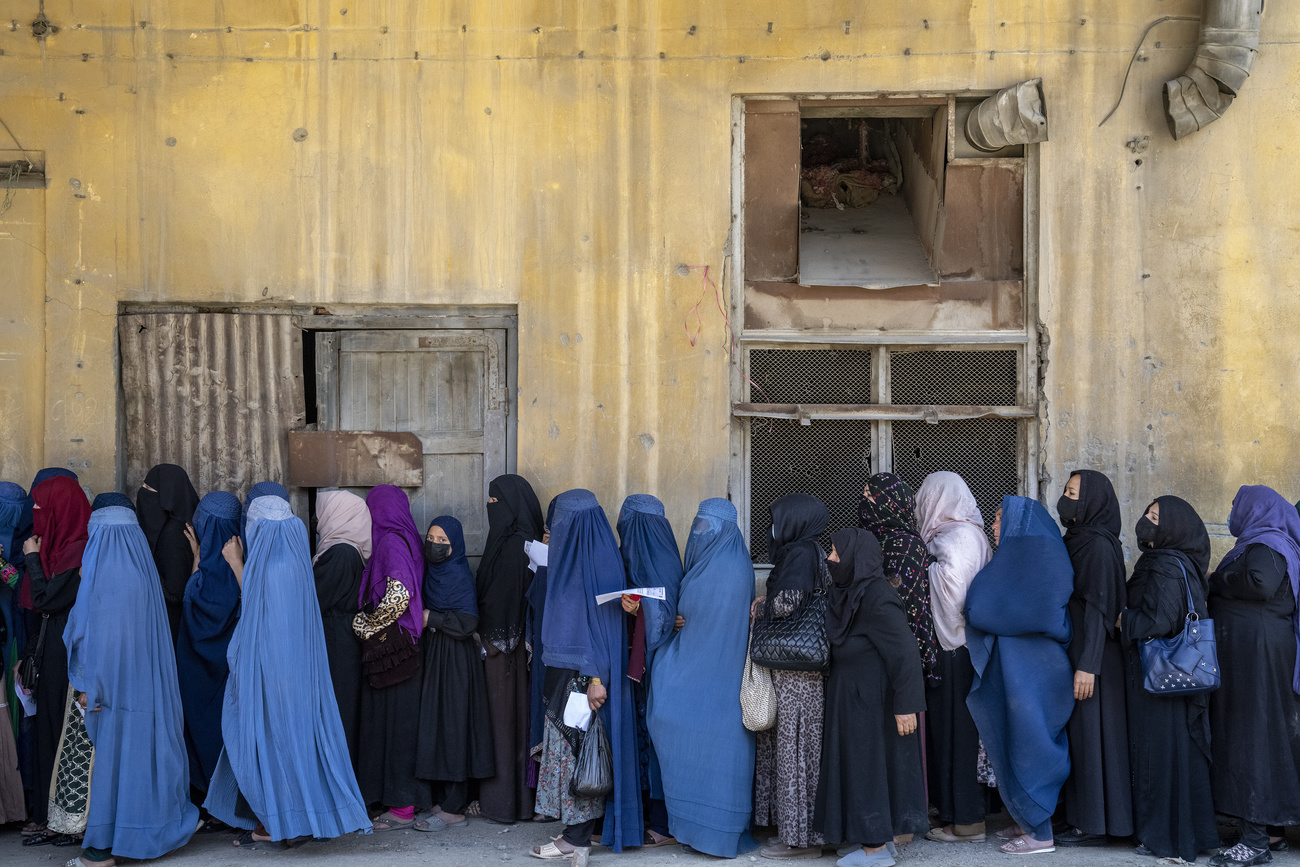

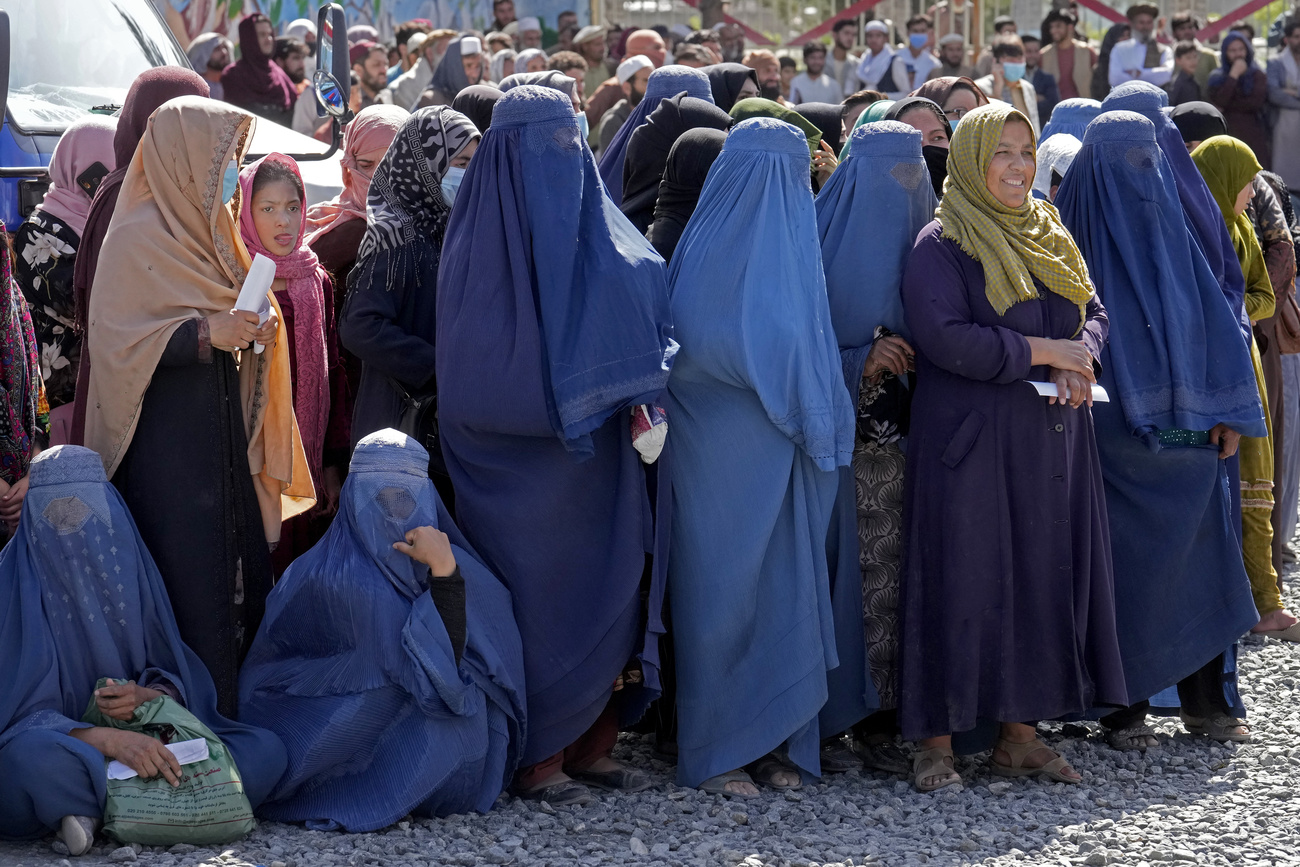
You can find an overview of ongoing debates with our journalists here . Please join us!
If you want to start a conversation about a topic raised in this article or want to report factual errors, email us at english@swissinfo.ch.